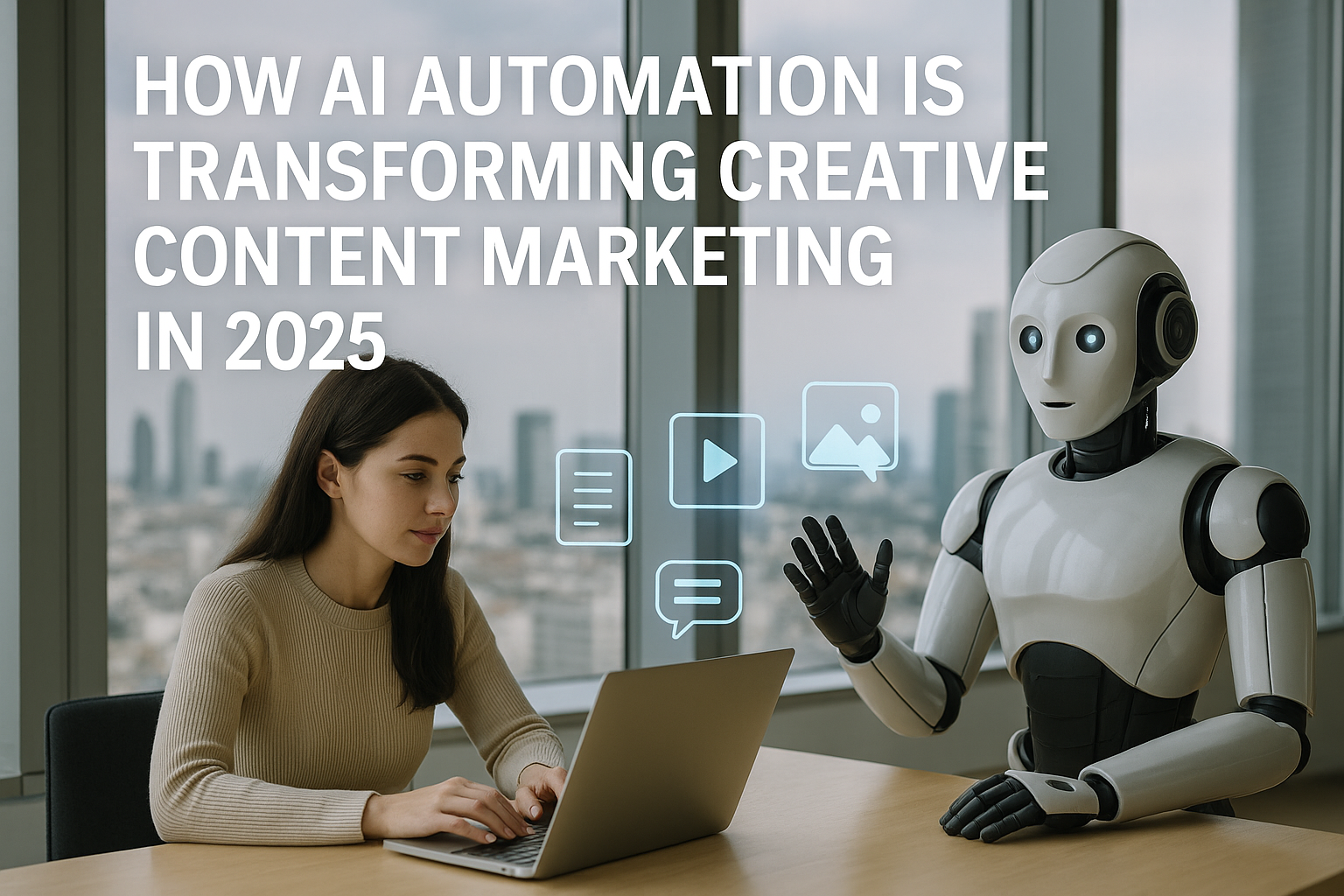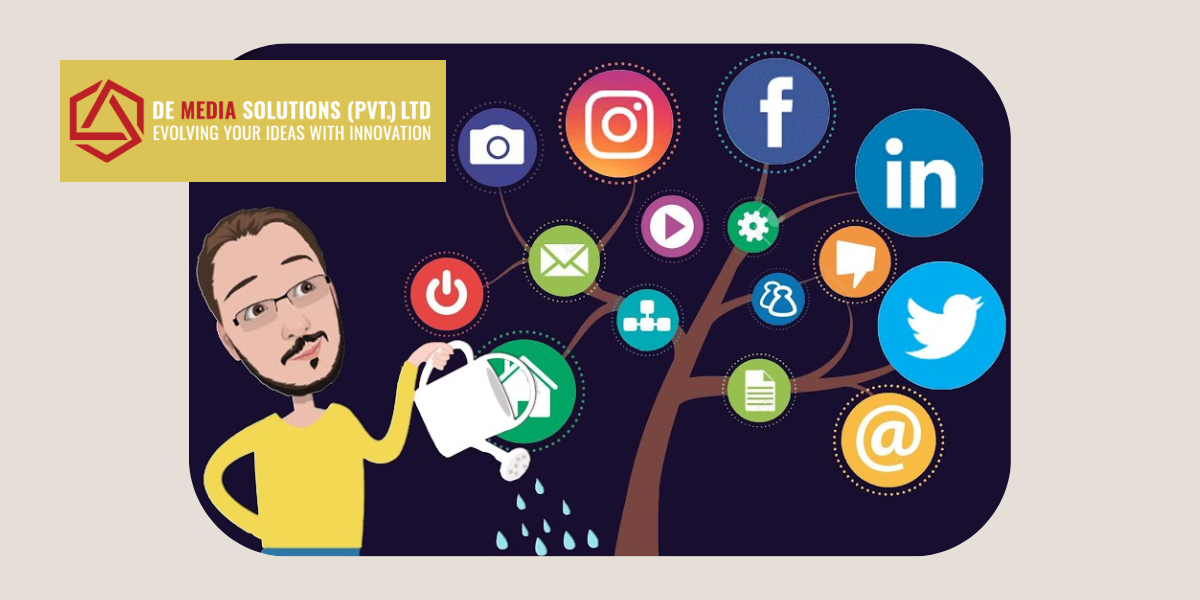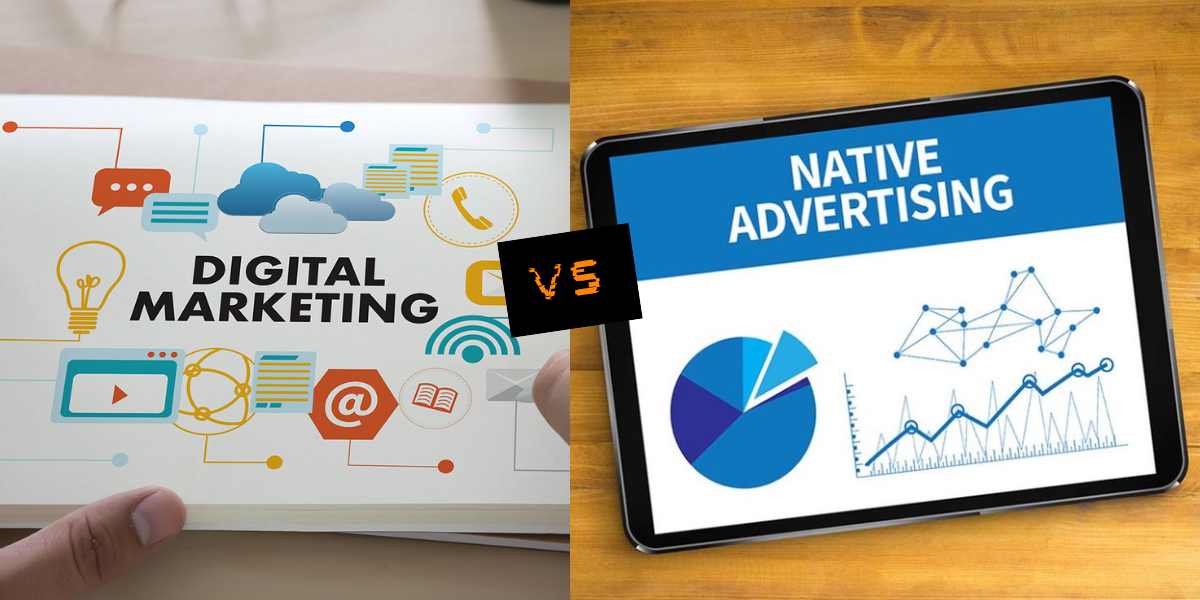How AI Automation Is Transforming Creative Content Marketing in 2025
How AI Automation Is Transforming Creative Content Marketing in 2025
With the passage of time online marketing also grew in 2025. AI has changed the online market in 2025. In this article we will discuss how AI helps the digital world.
The Development of Intelligent Content Production
Beyond simple word stuffing and grammar correction, AI techniques are improving significantly. While writing for blogs, social networking advertisements matched to the interests of the audience can now be produced by AI systems. With remarkable levels of quality and organization, tasks that used to take hours or days now only take minutes.Platforms that use generative AI can produce targeted material at scale, change style for target audiences, and copy brand language. To ensure that material is timely and easy to find.
AI tools improve human creativity rather than replace it. AI manages data research, drafts of ideas, and routine tasks, marketers can concentrate on strategy, story telling, and campaign strategy. Higher content throughput, lower costs for production, and quicker material rounds are the outcomes.
Scalable Customized Content
Over-personalization is one of the biggest changes AI makes to content marketing. Future machine learning, analytics, and real-time data processing have improved old division techniques. AI can provide material that feels personalized by examining a user’s previous purchases, browsing interests, and communication patterns.
For example, when a user visits an online store, they may receive writings and suggested goods that are specific to their previous activity. Email advertisements are now guided by AI messages directed to specific interests. By 2025, customers will not only demand this degree of customization, but it will also be necessary for brands to remain successful.
Tools for Content Creation and Automation
Tools for creating content with AI have improved greatly. Marketers are using different platforms like to create descriptions of goods, social media titles, writing for blogs, and ad copy, among other things. These tools guarantee stability across channels by understanding tone, meaning, and even the voice of the organization.
AI-generated sound and visual content is getting more popular. Brands may produce marketing reels or celebrity films with little human involvement by using different tools. Radio and advertisements can now be produced without a human speaker thanks to AI voice creation. This maintains expert quality while cutting the cost of manufacturing and speeding time to market.
Additionally, material versioning—the automatic process of changing material for various platforms, languages, or audience groups—is now supported by AI tools. This is particularly helpful in international marketing, where translation and differences in culture are important.
Chatbots with AI and Conversational Marketing
By 2025, AI chatbots have improved in emotional awareness, chatting abilities, and consistency with brands. These artificial intelligence bots are now able to connect to customers in greater detail and lead them through specific information journeys, going above and present Frequently Asked Questions.
Depending on the user’s stage in the buying process, chatbots that connect with artificially intelligent recommendation systems can recommend articles, images, pages for products, and even make appointments. This immediate transmission of material increases sales rates and facilitates better lead management.
For example, a visitor to a travel business’s website might communicate with a chatbot that not only answers questions about places but also suggests articles about annual travel styles, customized plans, and savings based on the user’s earlier interactions.
Using AI insights to improve content strategy
In the digital age, marketing planning involves analyzing huge quantities of data. By 2025, marketers will have the ability to use competitive assessment, campaign predictions, and intelligent content plans thanks to AI tools. These tools provide useful data to improve plans by looking at what its competitors are posting, audience reactions, and content shortages.
In order to target the correct audience, AI can help with choosing the best formats, channel combination, and publishing timings. This degree of detail ensures that content activities are not just creative but also informed by data and aimed at achieving desired results.
Optimization of Voice and visual searches
The automation of AI will be necessary for improving information for voice and search kinds as these technologies continue to develop. In order to improve popularity in photographic searches, marketers are now using AI to create audio scripts that are suited for voice-based search questions and to identify images with information.
Tools that increase popularity across media include those that automatically translate video content, make reviews, and improve labels and tags for search engines. By doing this, information may now be found on digital assistants and visual learning platforms in addition to normal search engines.
Cultural and Multiple Language Adaptation
The ability of AI to adjust information between different cultures and languages is helping companies worldwide.This guarantees that information is relevant locally without needing a different worker for every area.
Honesty and moral problems
Great authority with a great deal of responsibility. Nowadays, a lot of brands use protections to prevent fraud, deepfakes, and false information, and they reveal when material is generated by AI.
In order to guarantee equal and nice material, AI technologies are also being designed to identify and keep clear of negative words. In order to protect moral principles and guarantee that brand values are respected, human review is still essential.
Enhanced Creativity, Not Replaced
Before starting campaigns, marketers utilize AI to create concepts, test changes, and model reactions from the audience. More adventurous, experimental content with less risk is made possible by this increased creativity.
Before deciding on the best plan of action, the video editing team could, for example, apply AI to create many versions of a concept sketch, each personalized for a different buyer. AI automation is the only way to achieve this kind of fast creation.
Conclusion
To conclude I would like to say that In 2025, AI automation will rewrite original content marketing rather than simply change it. AI gives marketers the ability to communicate with audiences in more significant and meaningful ways by facilitating customization at large scales, speeding up the creation of content, and providing accurate data in real time. Although there are still moral concerns, the addition of AI into online advertising processes has improved the speed, diversity, and analysis of plans.



